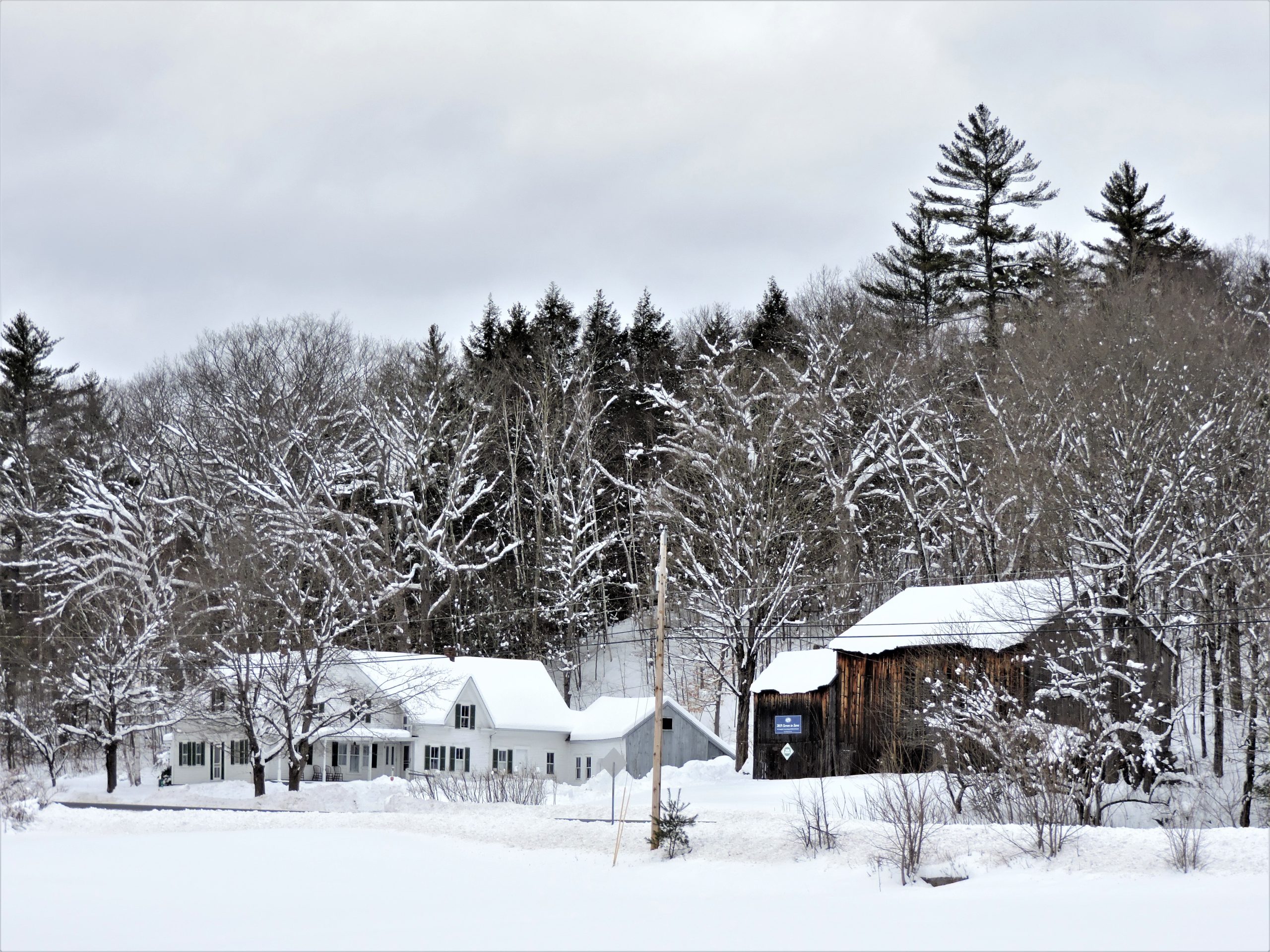
Winter was not a time of indolence or hibernation at Eagle Pond Farm in the days before its main crops were Donald Hall’s and Jane Kenyon’s poetry and prose.
Winter in those earlier years was when wood for the stoves, cut in summer, had to be hauled from the steep slopes of Ragged as soon as there was snow enough to sled it.
Typically, stovewood cut the previous summer was left to dry all the preceding year, then worked up the next fall and stacked in the woodshed attached to the far end of the house. The wood yarded in winter anticipated the following season. Don’s grandfather, Wesley, hired extra help for the cutting on Ragged and oversaw work on the woodlots. He sold firewood, too, delivering it as far as Andover, for $3 a cord in 1915.

In older years, winter was also when ice on the pond – after it had, for sure, frozen solid twelve inches deep – was scored and sawn in long strips, then cubes, and brought to the ice house behind the cow barn to be packed all around with sawdust that would preserve it for cooling milk in the warm months, frosting summer lemonade, and, in the years before electric refrigerators, keeping a cabinet icebox – installed in the back shed – chilled. The icebox, a convenience common in American households by 1900, required a new block of ice every day, and the melted ice in a drip tray had to be emptied, a chore that Don’s mother, growing up on the farm, especially disliked.
During winters, Don’s grandmother Kate, who had a millinery business, spent evenings making hats in anticipation of spring. She worked at a table in the center of the sitting room, shaping and decorating the hats with ribbons and feathers and fabric flowers bought in Boston.
Then, with the turning of the year, the parlor was for a while converted to a shop. All the furniture was removed, and sawhorses were set against three sides of the room. Long boards laid on them were then covered with white paper, and wire stands were arranged to display the hats.
For Don’s grandfather, there were certainly barn jobs, too, reserved for the winter, besides the daily milking and chores. And there in the barn near the house, the cows and the horse named Riley waited in their stalls for spring pasture.
Freeman Morrison, who was related to Kate and a wizard of farm work and invention, came down from his cabin higher on Ragged and spent the cold months at the farmhouse, sleeping in his bedroom upstairs.
Every winter, Anson, a hired man, used the room next to Freeman’s – which Don later made his upstairs study until relocating to the front bedroom downstairs where he had slept as a boy during the summers he came to the farm.
In the kitchen, Kate, and her mother Lucy before her, were glad of fall and summer canning that brightened winter meals.
Wesley, road agent for East Wilmot, was responsible for keeping open a section of Route 4 as well as the road that skirts Eagle Pond and the Wilmot portion of New Canada Road (which rises from Route 4) by rolling winter’s snow with a horse-drawn roller – in those years before snowplows, when snow was managed by compacting it for sleds and pungs and sleighs. At a time when most things that a farm needed were grown or made on the farm or traded, the cash earned from roadwork supplemented income from milk (shipped by train to Boston) and helped cover taxes.
Some farm work didn’t change with the seasons: many chores were daily or weekly, whatever the month – not only barn chores but also the mending, the laundry, the ironing, the meals, and the housekeeping.
Winter was also when longer light began to return. Despite the storms, the cold, the chores, and the extra layers of clothes, every year January again became February, and February promised spring, even if it was still months off.
February brought other promises, too, remembered in valentine boxes kept in the attic.
The nonprofit, At Eagle Pond, Inc. has also made promises – to the farm and to all the story and poetry it holds. We thank you for joining us in this, and for your gifts in support of what we’re building toward.
The website for the organization is AtEaglePond.org.